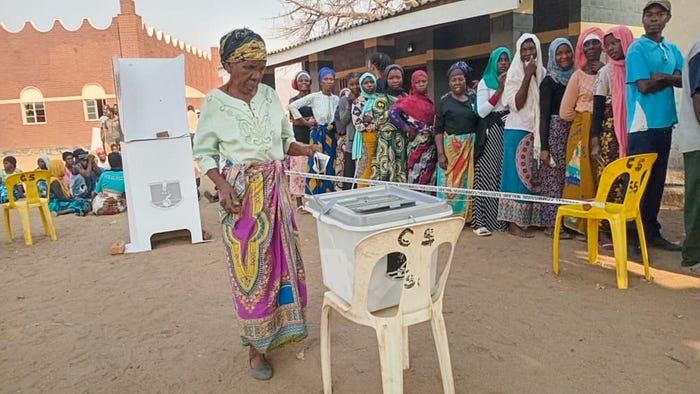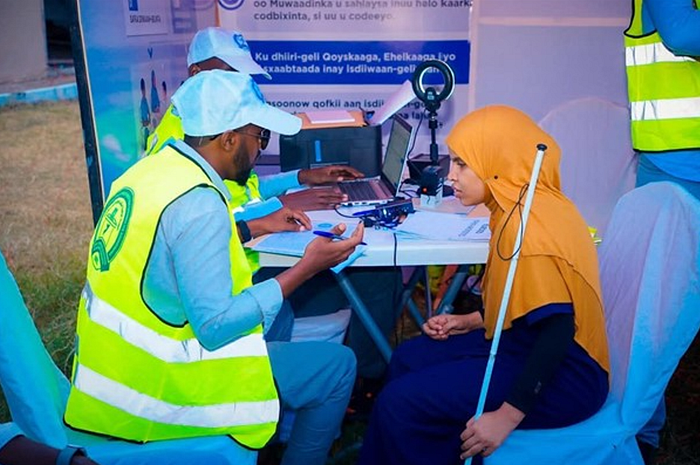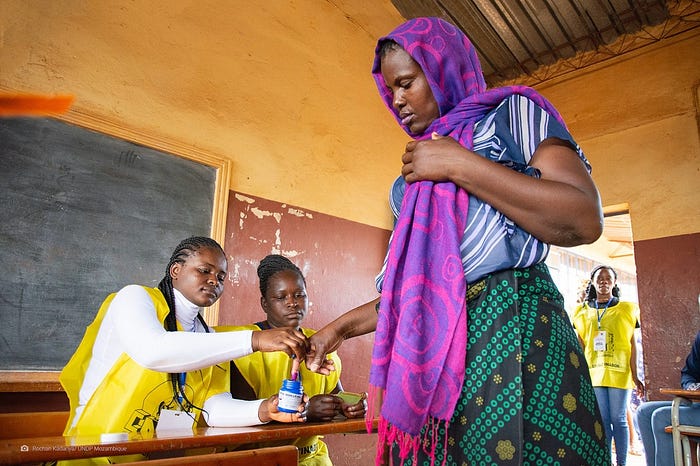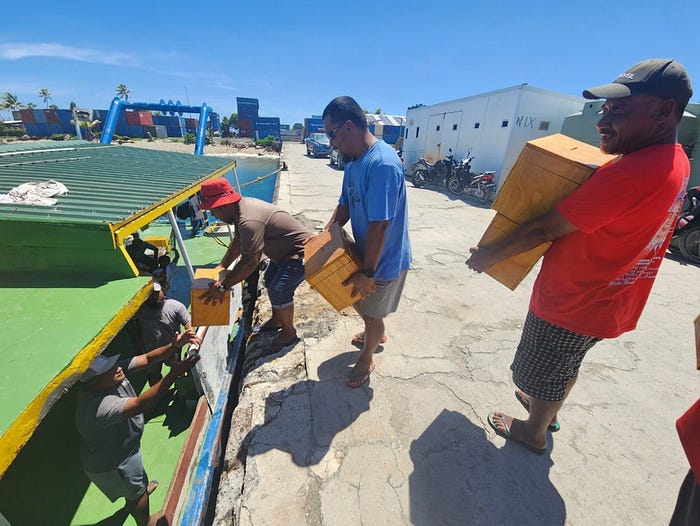
In Buluma Village, Malawi, Patuma, 82, woke at 4 a.m. to make her way to the Changamire Polling Centre to cast her vote in the country’s recent general elections. She hoped to elect a candidate who could bring down the price of fertilizer — a vital need for her family.
Across the globe, people head annually in great numbers to the ballot box — from remote villages to urban centres, from first-time voters to elders like Patuma. Each vote cast is a personal act of hope, trust and political participation — a symbolic yet tangible moment in democratic processes. Elections are among the largest peacetime mobilization efforts any country undergoes. They are also the moment when each individual citizen gets a meaningful say in the decisions that shape their lives.
In any given year close to one hundred countries might hold elections. Behind a number of these elections is the support of the United Nations. Working alongside national institutions and local partners, the UN system helps foster electoral processes that are peaceful, inclusive and credible — and has done so in over one hundred countries worldwide. At any given moment, more than 40 countries receive UN support — always at the request of the Member State or by mandate, and under national ownership. Most support is technical: strengthening electoral bodies, improving laws, furthering inclusion and providing operational assistance to ensure that every eligible citizen can take part.
A Global Effort Based on Local Context

In Malawi, where voters like Patuma took part in the recent general elections, the UN supported national efforts to strengthen electoral institutions, promote participation and help ensure that citizens had access to information.
But Malawi is just one example.
In Liberia, the UN helped reinforce electoral institutions. In Vanuatu, it assisted with organizing elections after a major earthquake. In Ecuador, the UN supported efforts to strengthen information integrity and civic engagement.
Support in each country looks different. In some contexts — such as the Central African Republic or Libya — assistance is multidimensional, part of UN peacekeeping or special political missions. In others, like Armenia, Panama or Timor-Leste, support has been more targeted. In every case, the approach is guided by national priorities and adapted to local contexts.
In countries without a UN peacekeeping or special political mission, UNDP plays a leading role as the UN system’s main provider of support — while also contributing to efforts in mission settings — helping strengthen institutions, sustain national capacities and forge partnerships.
As part of its support, the UN also works to make elections more inclusive — helping ensure that women, youth, persons with disabilities and other groups can take part in shaping their country’s political future.
Placing Women’s Participation at the Forefront

Around the world, women continue to face barriers to participation in elections — from discriminatory laws to online harassment. UN electoral assistance places inclusion at the centre of its work, helping ensure that women not only vote, but can also stand as candidates, lead electoral bodies and shape their communities’ futures.
In Jordan, the UN supported efforts to make elections more accessible for women and persons with disabilities. In the Democratic Republic of the Congo, Sierra Leone, Liberia and Mozambique, hundreds of women benefited from UN-supported training and outreach initiatives. Through partnerships with regional organizations, the UN has helped bring together women electoral officials and supported training on women’s leadership and inclusion.
These efforts continue to reflect a simple but powerful idea: every voice — including women’s — should be heard and recognized.
Responding to Sustained Demand
As the Organization marks its 80th anniversary, demand for UN electoral assistance shows no sign of slowing. In the past two years alone, 43 Member States have formally requested electoral assistance — including several for the first time — a clear sign of continuing trust in the UN’s role and expertise.
The Secretary-General’s latest report on electoral assistance (A/80/277) takes stock of UN support over the last two years, noting that during this period 58 Member States and territories received some form of UN electoral support. That demand also reflects a broader recognition that credible elections require constant attention and commitment.
At the same time, the report notes that declining funding — particularly in non-mission settings — risks limiting the UN’s ability to respond. It underscores that UN electoral assistance remains a cost-effective investment in good governance and conflict prevention.
Echoing the Secretary-General’s message in her recent presentation of the report to the Third Committee, Assistant Secretary-General for Africa Martha Ama A. Pobee said:
“Genuine elections that reflect the will of the people are not guaranteed. Gains can be reversed. Sustained commitment and investment are essential to ensure inclusion, protect electoral integrity and maintain public trust.”
The Many Hands of UN Assistance

Behind every election supported by the UN is a network of people — staff, experts, volunteers — who work with quiet dedication. Some work with national election commissions to train officials or support voter education; others help procure materials or move them across difficult terrain. Still others focus on fostering inclusion and helping enable a peaceful electoral environment.
This work is led and coordinated by the Under-Secretary-General for Political and Peacebuilding Affairs (DPPA), the UN’s focal point for electoral assistance, supported by the Department’s Electoral Assistance Division. Across these system-wide efforts, DPPA, the Department of Peace Operations, UNDP, UN Women, OHCHR, UNOPS, UNESCO, UNV and others each contribute according to their mandates and areas of expertise. Together, these efforts give tangible meaning to the UN’s commitment to support Member States at their request.
From young voters to displaced communities, from national commissions to civil society, the UN continues to support elections — one vote, and millions of voices at a time. For voters like Patuma, the simple act of marking a ballot is a reminder that every vote counts.

